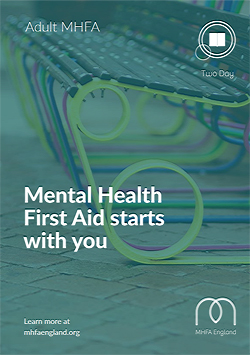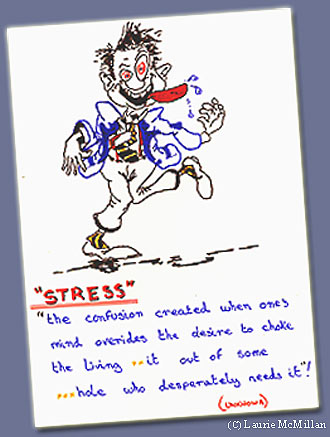 |
 |
|
Mental Health First Aid Training Promoted By CWU Mental Health First Aid is an educational course which teaches people how to identify, understand and help a person who may be developing a mental health issue. In the same way as we learn physical first aid, Mental Health First Aid teaches you how to recognise those crucial warning signs of mental ill health. Why do Mental Health First Aid training? There is widespread ignorance of mental ill health in the general population and there is the associated stigma too. For some the stigma can lead to delays in people seeking help and support. There is also a lack of confidence in what to do if someone is distressed or in a crisis situation. MHFA is a response to this with the aim of improving mental health literacy throughout communities and workplaces, with the belief that mental health crises, such as suicidal and self-harming actions, can sometimes be avoided by early intervention. Mental Health First Aid graduates receive an internationally recognised certificate of achievement. CWU Health, Safety & Environment Department Action The Health, Safety & Environment Department has worked with a number of branches and charities in CWU regions to help organise and encourage CWU reps to attend the two-day “Mental Health First Aid” training courses and these courses have now been successfully organised in a number of CWU branches, areas and regions including Northern Ireland, East, North East, North West and others. The Health, Safety & Environment Department and NEC H,S&E Sub-Committee would like to see more CWU representatives undergoing these training courses in order to recognise and assist members in distress. Health and Safety Representatives as well as Branch and Industrial Relations Representatives are encouraged to sign-up for and attend a MHFA 2-Day Course. Courses are organised regularly across the UK by Mental Health First Aid (England and Scotland) as well as by a number of mental health charities (‘MIND’ and ‘Rethink’ for example). Remploy, training organisations, regional TUCs and a number of Local Authorities sponsor the Courses in their catchment areas, enabling the training to be provided free or at a nominal fee price. Additionally many training organisations, companies and colleges now provide the courses. The MHFA training courses are delivered by trainers who are licensed and accredited by the MHFA Organisations. The Health, Safety & Environment Department would encourage and recommend that enquiries are made locally to establish availability and seek volunteers from amongst representatives to attend these training courses. The Health, Safety & Environment Department is available to assist wherever required. See attached summary information about the Mental Health First Aid 2-day training course content below. Course Aims – Spotting The Signs - Early Intervention and SupportMental health problems cover a wide range of issues including stress, anxiety, depression and substance abuse which can affect someone’s ability to get on with their daily life. Early intervention can help slow down or stop a mental health problem and lead to a faster recovery. However, most of us know little about mental health. We often don’t spot the signs that someone else - or ourselves - is struggling until very late. A MHFA course will teach you to recognise the early signs of a mental health problem, and give you the confidence and knowledge to help someone experiencing a mental health problem on a first aid basis, help stop someone from hurting themselves or others, help stop things from getting worse, guide those in need towards the right support and reduce the stigma of mental health problems.
MHFA licensed instructors deliver training that has been designed to fit into four manageable chunks. These are:
In each section students learn how to:
Conclusion Around 6,500 people kill themselves in the UK each year and 50,000 more attempt suicide. The figures are truly shocking. And the increased numbers make the need to address the problem all the more necessary and urgent. The highest risks of suicide are among those with depression and mental health problems. There is no doubt about the message we must all take from these latest figures. Mental Health issues and in particular Suicide is a problem we all have a duty to address. Not just shocking for every family, every friend connected with those individual tragedies. Not just for the doctors and nurses who may in some cases have been trying to help. But it should shock us all. Every Employer and every work colleague, everyone in our society. The causes are likely to be multiple and for the most part, responsibility is collective. Not singular. It's not therefore someone else’s problem. It is our problem. If we can move away from the simplistic idea that it’s a problem for “them” and not “us”, in recognising our collective role we might just be able to begin to make a difference and do our bit to try to turn these figures around. We can’t be sure we will bring the figures down but we have a duty to try - Every single one of us. And that’s what we hope the Union can do and working with the employers we can do – So please consider getting reps in your Branches, Areas and Regions trained and involved and start moving mental health to an equal place at the top table of our thinking. Mental Health problems are common especially for those suffering with severe depression or anxiety. How many people, young and old are now suffering the pain of problems of mental health? 98% of people over the age of 30, who take their own lives, have a history of mental illness. Mental Health First Aid is exactly what it suggests, a first aid approach to mental health. Source: Dave Joyce / CWU You can find a number of items of resource on mental health in the E-Library Database using search categories 'Mental Health' and 'Stress' |
 Here, Dave Joyce, CWU's National Health, Safety & Environment Officer discusses the training course and provides background and explains why the Union is supporting mental health training first-aid and believes it is a good idea for all Union Safety Reps and indeed; all those who are concerned about the mental health of both themselves and others.
Here, Dave Joyce, CWU's National Health, Safety & Environment Officer discusses the training course and provides background and explains why the Union is supporting mental health training first-aid and believes it is a good idea for all Union Safety Reps and indeed; all those who are concerned about the mental health of both themselves and others. 
 The two day Adult MHFA course is an internationally recognised course. After taking it, participants will be able to:
The two day Adult MHFA course is an internationally recognised course. After taking it, participants will be able to: